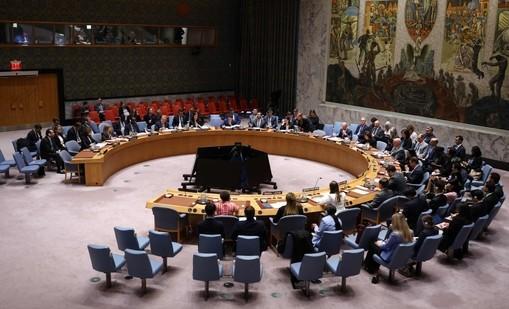
Was LeT involved? UNSC asks Pak on J&K attack, refuses to accept ‘false flag’ claim
In a significant development, the United Nations Security Council (UNSC) members, in a closed-door meeting requested by Pakistan, refused to accept its “false flag” narrative on the recent Pahalgam attack in Jammu and Kashmir. The meeting was witnessed by several countries, including the United States, the United Kingdom, France, and China, who questioned whether the terror outfit Lashkar-e-Taiba (LeT), based in Pakistan, was likely to be involved in the attack.
The Pahalgam attack, which took place on October 11, resulted in the death of a 70-year-old Indian tourist and injured several others. The attack has been widely condemned by the international community, with many countries expressing their deep concern over the growing threat of terrorism in the region.
Pakistan, however, has been trying to downplay its involvement in the attack, claiming that it was a “false flag” operation designed to discredit the country. The Pakistani government has been adamant that the attack was carried out by Indian security forces to create a rift between the two nations.
However, UNSC members were not convinced by Pakistan’s claims, and instead, questioned whether LeT, a terror outfit known for its ties to Pakistan’s military and intelligence agencies, was involved in the attack. Some members reportedly brought up the targeting of tourists on the basis of religion, which has been a recurring theme in Jammu and Kashmir in recent years.
The UNSC meeting was a significant development, as it marked the first time that the international body had taken a stand on the Pahalgam attack. The meeting was convened by the European Union, which has been a vocal critic of Pakistan’s role in sponsoring terrorism in the region.
The European Union’s Ambassador to the United Nations, Olof Skoog, said that the UNSC members were “deeply concerned” about the growing threat of terrorism in Jammu and Kashmir and the role that Pakistan plays in it. He also called on Pakistan to take concrete steps to prevent the use of its territory for terrorist activities.
The UNSC meeting was also attended by several other countries, including the United States, which has been a long-time critic of Pakistan’s policy towards Jammu and Kashmir. The US Ambassador to the United Nations, Linda Thomas-Greenfield, said that the US was “deeply troubled” by the Pahalgam attack and called on Pakistan to take immediate action to prevent such attacks in the future.
Pakistan’s Ambassador to the United Nations, Munir Akram, however, denied any involvement by LeT or any other terror outfit in the attack. He claimed that the attack was a “false flag” operation designed to discredit Pakistan and disrupt peace talks between India and Pakistan.
However, the UNSC members were not convinced by Pakistan’s claims, and instead, called on the country to take concrete steps to prevent the use of its territory for terrorist activities. The meeting was a significant development, as it marked the first time that the international body had taken a stand on the Pahalgam attack.
The Pahalgam attack is the latest in a series of attacks on tourists in Jammu and Kashmir, which have been widely condemned by the international community. The attacks have been attributed to various terror outfits, including LeT, which has been known to target tourists and civilians in the region.
The UNSC meeting was a significant development, as it marked the first time that the international body had taken a stand on the Pahalgam attack. The meeting was convened by the European Union, which has been a vocal critic of Pakistan’s role in sponsoring terrorism in the region.
In conclusion, the UNSC meeting was a significant development, as it marked the first time that the international body had taken a stand on the Pahalgam attack. The meeting was a clear indication that the international community is concerned about the growing threat of terrorism in Jammu and Kashmir and the role that Pakistan plays in it.



